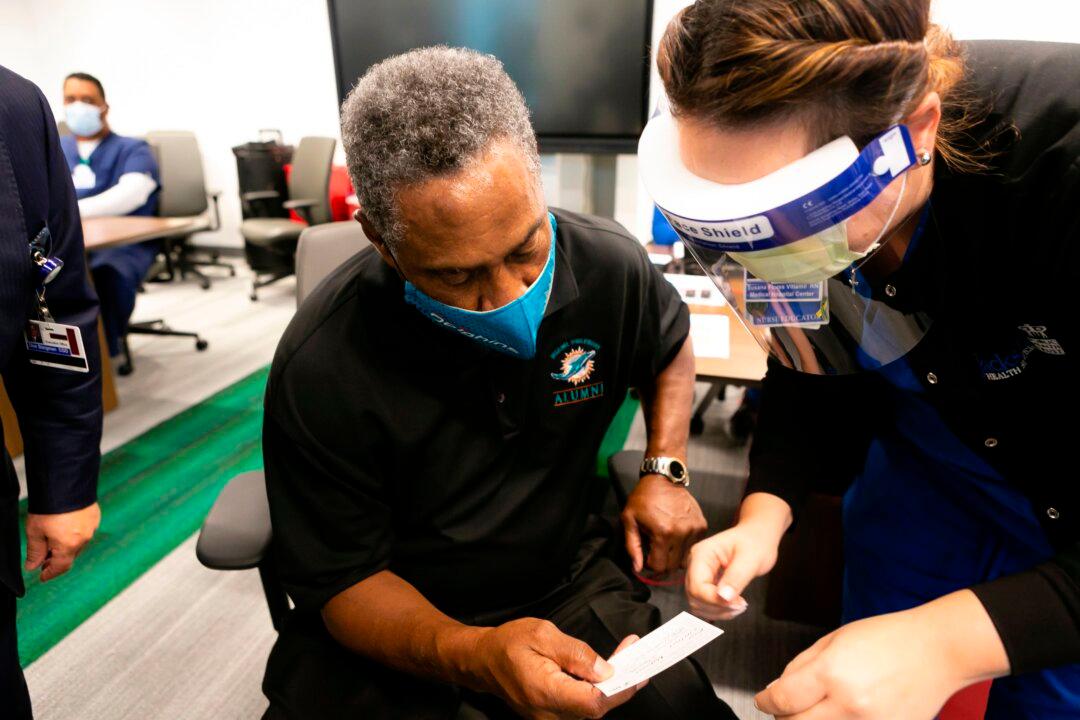Businesses across the United States are increasingly leaning into the vaccination effort, offering a range of freebies and incentives to customers who show proof of getting a COVID-19 shot.
Security experts note, however, that the information on vaccine record cards—currently the only proof of vaccination—contains sensitive information that bad actors could exploit; they urge people to be mindful when flashing the cards—and definitely not share photos of them on social media.





